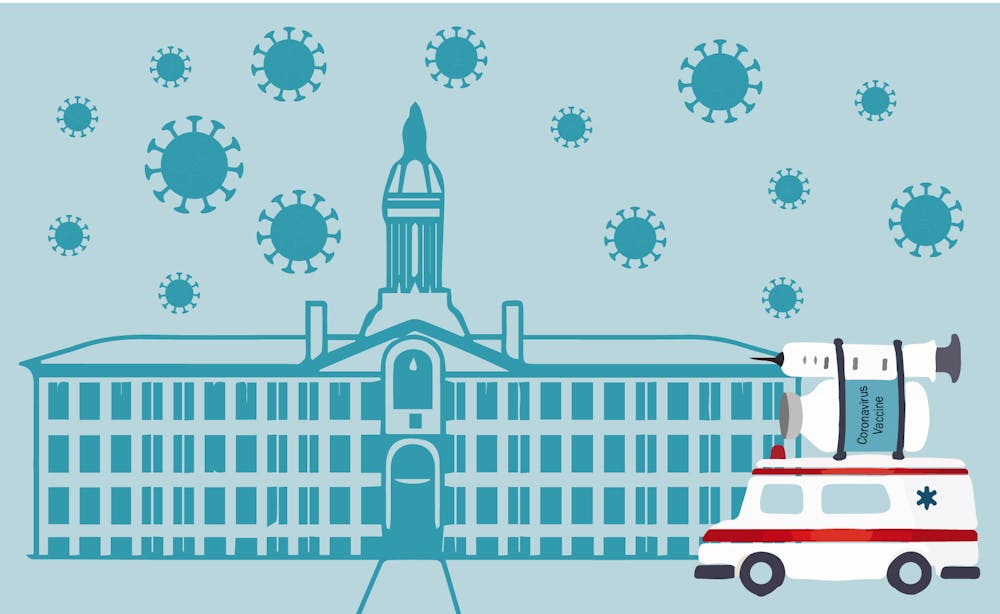In recent months, I developed a weekly ritual. As the clock struck midnight, and Sunday turned to Monday, I would complete and scan my COVID-19 test. On my way to class in the morning, I would toss my biohazard baggie into the testing dropbox and go about my day. After my seminar, I would check the TigerSafe app and do a little jump for joy: another week with no COVID-19 detected.
Last week was no different. By 5 p.m., I had tested negative on Monday night and proceeded to enjoy the rest of the evening with friends. On Tuesday, however, I woke to upsetting news: several of my close contacts had tested positive for COVID-19. I started developing symptoms later that afternoon and tested positive myself on Wednesday.
I’m not alone. Dozens of Princeton affiliates have tested positive in the last week, causing the University to revise its policies, require more testing, and strengthen the mask mandate.
On the whole, I feel fine. I’ve lost my sense of taste and smell. But I’ve avoided any more serious symptoms, likely thanks to the vaccines I received earlier this year.
So far, every case detected by Princeton (including my own) has had nothing to do with the omicron variant. Staff at University Health Services (UHS) told me it’s more likely that my case could be attributed to the waning strength of my antibody response, as it has been more than six months since my last vaccination.
Breakthrough cases are supposed to be rare, but given last week’s outbreak, it’s clear that more should be expected in the coming weeks, as vaccines’ effects wear down. The good news for us is that the FDA has recently expanded vaccine booster eligibility.
In order to ensure the health and safety of our community, it’s time for the University to mandate booster vaccination and make them more accessible.
Presently, the Moderna clinic at Jadwin Gym is offered only once a week during a three-hour window on Thursday afternoons. And the BioNTech-Pfizer clinic has been nearly equally inaccessible to members of the student body.

After the FDA announcement, I planned to get a booster shot. But between my class schedule and a general end-of-term laziness, I reasoned that the schlep to Jadwin could wait a couple of weeks (a decision I now regret).
Each year during Flu Fest the University vaccinates thousands of community members in the basement of Frist Campus Center, requiring no appointments and generally demanding little to no wait time. UHS works hard to ensure that there are as few barriers as possible to vaccination. A similar scheme is needed for COVID-19 boosters. Why have they been relegated to such a far corner of campus? And why have boosters been offered only during short windows that largely conflict with classes?
There are no guarantees, given the nature of the pandemic. Perhaps even if I had received a booster vaccination, I still would have COVID-19. But we can be certain that expanding access and mandating boosters will, on the whole, ensure that the campus community is less likely to have and spread COVID-19. New studies have shown that not only do boosters restore antibody responses to levels comparable to that after initial vaccination, they also exceed this original count.
As case counts rise, the University should move quickly to require booster vaccinations and host a series of more accessible clinics before winter break.

Zachariah Sippy is chair of the ‘Prince’ editorial board. He is a junior from Lexington, Ky. and can be reached at zsippy@princeton.edu.








